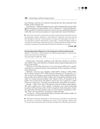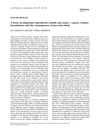Search
for
Sort by
Research
120-150 / 1000+ results
research Hormonal Therapy for Acne: Why Not as First Line Therapy? Facts and Controversies
Hormonal treatments can help with acne but are not the first choice due to side effects and the need for careful patient selection.

research Profuse Hair Loss Due to Sudden Weight Loss and Hormonal Injections in Women
Rapid weight loss from dieting and hormonal injections can cause significant hair loss in women.

research A Case of Folliculitis Decalvans With Concomitant Acne Keloidalis Nuchae, Androgenic Alopecia, and Profound Postinflammatory Hyperpigmentation
Folliculitis decalvans mainly affects middle-aged African American men and is treated with antibiotics.
research Malassezia (Pityrosporon) Folliculitis Occurring During Pregnancy
A pregnant woman developed a rash caused by a yeast infection, not acne.

research Acne in Adult Women: A Study at Ibn Rochd University Hospital
Acne is common in adult women, often continues from adolescence, and can lead to scarring.

research Vulvar Fordyce Adenitis: A Cohort of 45 Women
Vulvar acne, also known as "vulvar Fordyce adenitis", is a condition causing painful bumps on the labia, and it's not always effectively treated with common acne medications, but isotretinoin has shown promise.

research Pregnancy's Effects on the Skin
Pregnancy can cause various skin changes, including pigmentation, acne, and stretch marks, and may affect preexisting skin conditions.

research Use of Spironolactone in Dermatology: Acne, Hidradenitis Suppurativa, Female Pattern Hair Loss, and Hirsutism
Spironolactone is effective for acne, hidradenitis suppurativa, female hair loss, and hirsutism but is underused in dermatology.
research Perifolliculitis Capitis Abscedens et Suffodiens
The man's scalp condition did not improve with tetracycline treatment.
research Treatment of Acne with Intermittent Isotretinoin: Cohort Study
Intermittent isotretinoin can cause various skin, hair, and nail changes.

research Acne in Children: Presentation and Treatment Overview
Acne in children varies by age and severity, requires a pediatric treatment approach, and may need diagnostic evaluation for underlying conditions.

research Editorial Note on Next-Generation Therapies and Advanced Acne Treatment
New acne treatments like clascoterone and minocycline foam are effective, and using antibiotics carefully is important to avoid resistance.

research Anti-Acne Agents Attenuate FGFR2 Signal Transduction in Acne
Anti-acne medications may work by reducing the activity of a protein involved in acne development.

research Table of Contents
Understanding drug effects and careful monitoring are crucial for safe and effective dermatology treatments.

research Skin Problems in Pregnancy
Pregnancy can cause skin changes and may affect pre-existing skin conditions, with some treatments not safe for use during pregnancy.
research Aberrant Wnt Signaling Induces Comedo-Like Changes in the Upper Hair Follicle
Abnormal Wnt signaling in hair follicle stem cells can lead to acne-like cysts.

research Critical Appraisal of Reports on the Treatment of Perioral Dermatitis
Most studies on perioral dermatitis treatment are of low quality, with some agreement on oral tetracycline effectiveness and stopping steroids and cosmetics.

research The Pill: Pimples, Pigmentation, and Alopecia?
Birth control pills can improve or cause acne and hair issues, with improvements more common, and may affect skin pigmentation.

research Hirsutism: A Clinico-Investigative Study
Most cases of excessive hair growth in women are caused by polycystic ovarian syndrome and are linked to higher free testosterone levels.

research Combination of Low-Dose Isotretinoin and Pulsed Oral Azithromycin in the Management of Moderate to Severe Acne
Low-dose isotretinoin combined with pulsed azithromycin cleared acne in most patients, with mild side effects.

research Acne: Diet and Acnegenesis
Eating dairy and high glycemic foods may increase the risk of acne.

research Crystal Structure and Synthesis of 17α-Acetoxy-6,7-Epoxypregn-4-ene-3,20-dione
A new compound was made that might help treat diseases related to male hormones.

research A Review of Diagnosis and Treatment of Acne in Adult Female Patients
Adult female acne treatment should be personalized, considering individual preferences and pregnancy, using various topical and oral medications while managing side effects and resistance.

research Transgender Adolescents and Acne: A Case Series
Testosterone treatment in transgender teens can worsen acne, requiring careful treatment due to mental health and medication side effects.

research A Focus on Important Reproductive Health Care Issues – Cancer, Urinary Incontinence and the Consequences of Pre-Term Birth
The issue covers reproductive health topics like cancer markers, incontinence treatments, and the impact of pre-term birth.

research Bibliometric Study of Adaptogens in Dermatology: Pharmacophylogeny, Phytochemistry, and Pharmacological Mechanisms
Plant adaptogens may help treat skin diseases and improve skin health, but more research is needed to fully understand how they work.

research Dermatological Problems in the Football Player
Football players can get many skin conditions from their sport, which need different treatments and can be prevented with good hygiene and protection.
research Acne Therapy
Hormonal imbalances can cause acne, and treatments may include hormone-blocking medications.

research Dermatology Issues in Sports
Athletes can experience various skin issues, which can be treated and prevented with appropriate care and protective measures.